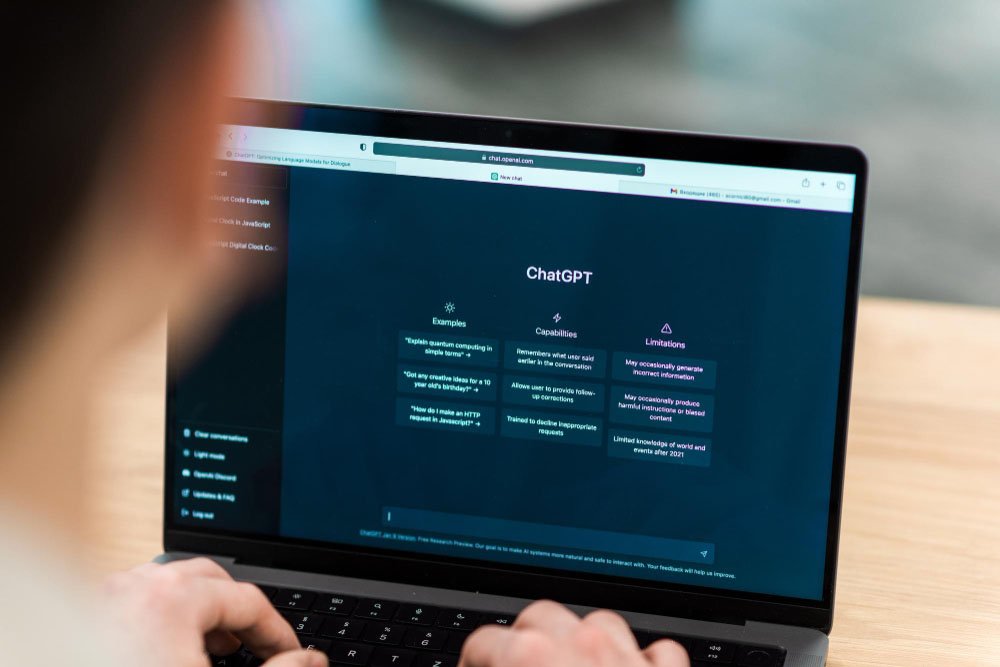The marketing landscape has undergone a revolutionary transformation in 2025, with artificial intelligence becoming an indispensable ally for strategic professionals. ChatGPT stands at the forefront of this evolution, empowering marketers to create compelling content, analyze vast datasets, and engage customers with unprecedented precision. Leading marketing expert North Carolina professionals recognize that mastering AI tools is no longer optional—it’s essential for competitive advantage.
Destry Henson, a renowned marketing guru North Carolina, emphasizes that successful integration of ChatGPT into marketing strategies requires both technical understanding and creative vision. This comprehensive guide explores how forward-thinking businesses leverage ChatGPT to enhance their marketing effectiveness, streamline operations, and achieve measurable results in today’s dynamic digital environment.
Understanding ChatGPT’s Role in Modern Marketing Strategy
Artificial intelligence has fundamentally altered how marketing professionals approach strategy development, content creation, and customer engagement. ChatGPT represents a paradigm shift from traditional marketing tools to intelligent systems capable of understanding context, generating creative solutions, and adapting to specific business needs.
The Strategic Foundation of AI-Driven Marketing
Marketing expert North Carolina professionals understand that ChatGPT functions as a strategic multiplier rather than a replacement for human creativity. The technology excels at processing large volumes of information, identifying patterns, and generating insights that inform decision-making processes.
Consequently, businesses that integrate ChatGPT effectively can scale their marketing operations while maintaining personalization and quality standards.
For optimal performance, define clear objectives and set realistic expectations when using ChatGPT. Marketers will achieve the best results by providing specific prompts, detailed context, and precise requirements. Furthermore, the technology enables rapid iteration and testing of marketing concepts, allowing teams to explore multiple strategic directions simultaneously.
Moreover, Destry Henson frequently emphasizes that ChatGPT’s true value emerges when combined with human expertise and industry knowledge. The AI tool provides foundational support, but experienced marketers must interpret results, refine outputs, and ensure alignment with broader business objectives.
Integration Challenges and Opportunities
Implementing ChatGPT successfully requires overcoming several common obstacles. Many organizations struggle with prompt engineering, quality control, and maintaining brand consistency across AI-generated content. Additionally, teams must develop new workflows that balance automation efficiency with human oversight and creative direction.
On the other hand, businesses that navigate these challenges discover significant opportunities for competitive differentiation. ChatGPT enables rapid response to market changes, efficient content production at scale, and sophisticated audience segmentation based on behavioral data analysis. These capabilities become particularly valuable in dynamic industries where timing and relevance determine marketing success.
Content Creation and Brand Messaging Excellence

Content production remains one of ChatGPT’s most powerful applications in marketing strategy. The technology transforms how brands develop messaging, create campaigns, and maintain consistent communication across multiple channels and touchpoints.
Developing Compelling Brand Narratives
First and foremost, ChatGPT excels at generating foundational content that marketers can refine and customize for specific audiences. The tool analyzes brand guidelines, target audience characteristics, and campaign objectives to produce relevant messaging frameworks. Additionally, it helps maintain tonal consistency across diverse content types while adapting style and approach for different platforms and contexts.
Marketing guru North Carolina specialists leverage ChatGPT to explore various narrative angles and messaging approaches before committing to specific creative directions. This process enables more thorough exploration of possibilities while reducing the time investment required for initial concept development. Furthermore, the technology supports rapid A/B testing of different messaging variations to identify optimal approaches.
Achieving successful content creation with ChatGPT necessitates meticulous prompt engineering and continuous refinement. Marketers must provide detailed context about brand voice, audience preferences, and strategic objectives to achieve optimal results. The technology responds well to specific instructions regarding tone, style, length, and formatting requirements.
Multi-Channel Content Optimization
ChatGPT facilitates seamless content adaptation across different marketing channels and platforms. A single strategic message can be transformed into blog posts, social media content, email campaigns, and advertising copy while maintaining core messaging consistency. This capability significantly reduces content production time while ensuring cohesive brand communication.
Notably, this technology is particularly effective at generating diverse content tailored for distinct platforms and audience groups. For instance, a comprehensive product announcement can be adapted into concise social media posts, detailed technical documentation, and persuasive sales materials. Each version maintains strategic alignment while optimizing for channel-specific requirements and audience expectations.
Moreover, Destry Henson and other marketing expert North Carolina professionals emphasize the importance of maintaining human oversight throughout the content creation process. While ChatGPT provides excellent foundational content, experienced marketers must ensure accuracy, relevance, and strategic alignment with broader campaign objectives.
Data Analysis and Market Research Applications
Market intelligence represents another area where ChatGPT delivers substantial value for marketing strategists. The technology processes complex datasets, identifies trends, and generates actionable insights that inform strategic decision-making across various marketing disciplines and initiatives.
Advanced Customer Segmentation Techniques
To begin with, ChatGPT analyzes customer data to identify behavioral patterns, preferences, and engagement trends that may not be immediately apparent through traditional analysis methods. This capability enables more sophisticated audience segmentation strategies that go beyond demographic characteristics to include psychographic and behavioral factors.
Subsequently, marketers can develop highly targeted campaigns that resonate with specific customer segments based on their unique characteristics and preferences. ChatGPT processes purchase history, engagement data, and demographic information to create detailed customer profiles that inform personalized marketing approaches.
For example, an e-commerce business might use ChatGPT to analyze customer purchase patterns and identify opportunities for cross-selling or upselling based on individual customer journeys. The technology can suggest optimal timing, product combinations, and messaging approaches for maximum effectiveness.
Competitive Analysis and Market Positioning
Alternatively, ChatGPT supports comprehensive competitive analysis by processing publicly available information about competitors’ strategies, messaging, and market positioning. Marketing guru North Carolina teams use this capability to identify market gaps, differentiation opportunities, and strategic advantages that inform campaign development.
The technology is excellent at synthesizing information from various sources to produce comprehensive market overviews and competitive landscapes. This analysis helps marketers understand industry trends, identify emerging opportunities, and develop strategies that capitalize on market dynamics and competitor weaknesses.
Furthermore, ChatGPT can analyze customer feedback, reviews, and social media conversations to gauge market sentiment and identify areas for improvement or differentiation. This intelligence provides valuable context for strategic planning and campaign development processes. The following analytical capabilities make ChatGPT particularly valuable for market research:
- trend identification across multiple data sources and time periods;
- sentiment analysis of customer feedback and social media conversations;
- competitive positioning analysis based on public information and market data;
- customer journey mapping that identifies optimization opportunities and pain points.
These analytical capabilities enable more informed strategic decisions while reducing the time and resources required for comprehensive market research initiatives.
Customer Engagement and Personalization Tactics
Personalized communication has become essential for effective marketing, and ChatGPT enables sophisticated personalization strategies that scale across large customer bases. The technology analyzes individual customer data to create tailored experiences that drive engagement and conversion.
Dynamic Content Personalization Strategies
Note that ChatGPT can generate personalized content for individual customers based on their purchase history, browsing behavior, and demographic characteristics. This capability enables dynamic email campaigns, personalized product recommendations, and customized landing pages that speak directly to individual customer needs and preferences.
Businesses can develop advanced nurturing campaigns that tailor content according to customer interactions and engagement levels. ChatGPT analyzes customer responses and adjusts subsequent communications to maintain relevance and engagement throughout the customer journey. This approach significantly improves conversion rates and customer satisfaction.
Moreover, the technology supports real-time personalization across multiple touchpoints, ensuring consistent and relevant experiences regardless of how customers interact with the brand. Whether through email, social media, or website interactions, ChatGPT helps maintain personalized communication that builds stronger customer relationships.
Automated Customer Support and Engagement
ChatGPT enhances customer support capabilities by providing intelligent responses to common inquiries while maintaining brand voice and personality. The technology handles routine questions efficiently while escalating complex issues to human representatives, ensuring optimal resource allocation and customer satisfaction.
Additionally, automated engagement strategies powered by ChatGPT can identify opportunities for proactive communication based on customer behavior patterns. For instance, the system might trigger personalized offers when customers show signs of disengagement or provide helpful information when customers appear to be researching specific products or services.
Destry Henson notes that successful customer engagement strategies balance automation efficiency with authentic human connection. ChatGPT provides the foundation for scalable personalization, but marketing expert North Carolina teams must ensure that automated communications maintain the warmth and authenticity that customers expect from meaningful brand relationships.
Advanced Marketing Campaign Automation

Campaign automation represents one of the most sophisticated applications of ChatGPT in marketing strategy. The technology enables complex, multi-touchpoint campaigns that adapt based on customer behavior and market conditions while maintaining strategic alignment and brand consistency.
Multi-Touch Campaign Development
First, ChatGPT facilitates the creation of sophisticated campaign workflows that integrate multiple channels and touchpoints into cohesive customer experiences. The technology can map customer journeys, identify optimal touchpoints, and generate appropriate content for each stage of the engagement process.
Nevertheless, successful campaign automation demands meticulous planning and strategic oversight. Marketers must define clear objectives, establish performance metrics, and create feedback mechanisms that allow for continuous optimization and improvement. ChatGPT provides the operational foundation, but human strategists must guide the overall approach and ensure alignment with business objectives.
North Carolina marketing experts highlight that while automation improves efficiency, it is crucial to remain flexible and adaptable to market fluctuations. Automated campaigns should include mechanisms for real-time adjustments based on performance data and market feedback.
Performance Optimization and Iteration
Subsequently, ChatGPT supports continuous optimization by analyzing campaign performance data and suggesting improvements based on observed patterns and outcomes. The technology can identify underperforming elements, recommend adjustments, and generate alternative approaches for testing and validation.
For example, the system could analyze email open rates, click-through rates, and conversion data. This analysis would help identify the best send times, subject lines, and content formats for various audience segments. This analysis enables data-driven optimization that improves campaign effectiveness over time.
Furthermore, ChatGPT facilitates rapid testing of campaign variations through automated A/B testing frameworks. The technology can generate multiple versions of campaign elements, track performance metrics, and recommend winning variations based on statistical significance and business impact. The following optimization strategies demonstrate ChatGPT’s campaign management capabilities:
- automated A/B testing of subject lines, content, and call-to-action elements;
- real-time campaign adjustments based on performance metrics and engagement data;
- predictive modeling that identifies optimal timing and frequency for customer communications;
- cross-channel campaign coordination that ensures consistent messaging and experience quality.
These capabilities enable more sophisticated campaign management while reducing the manual effort required for ongoing optimization and performance improvement.
Measuring Success and Optimization Strategies
Performance measurement becomes increasingly sophisticated when ChatGPT supports data analysis and insight generation. The technology transforms raw performance data into actionable intelligence that guides strategic decisions and campaign optimization efforts.
Comprehensive Analytics and Reporting
ChatGPT excels at processing intricate performance datasets, producing comprehensive reports that pinpoint key trends, opportunities, and areas for improvement. The technology can analyze data from multiple sources to create holistic performance overviews that inform strategic planning and tactical adjustments.
Additionally, automated reporting capabilities ensure that stakeholders receive regular updates on campaign performance without requiring significant manual effort from marketing teams. ChatGPT can generate customized reports for different audiences, highlighting metrics and insights most relevant to their specific needs and responsibilities.
Moreover, the technology supports predictive analytics that help marketers anticipate future performance trends and adjust strategies accordingly. By analyzing historical data and current market conditions, ChatGPT can identify patterns that inform forecasting and resource allocation decisions.
Strategic Optimization and Growth Planning
For example, marketing teams can leverage ChatGPT to analyze customer lifetime value trends, pinpoint high-value segments, and formulate strategies to scale successful approaches to wider audiences. This analysis supports strategic growth planning while ensuring efficient resource allocation and maximum return on investment.
Destry Henson emphasizes that successful optimization requires balancing short-term performance improvements with long-term strategic objectives. ChatGPT provides the analytical foundation for informed decision-making, but marketing expert North Carolina professionals must interpret results within the broader context of business goals and market dynamics.
It’s the same for competitive analysis and market positioning assessments. ChatGPT can process competitive intelligence and market data to identify opportunities for differentiation and strategic advantage, but human strategists must translate these insights into actionable plans that align with organizational capabilities and objectives.
Frequently Asked Questions
How does ChatGPT ensure brand consistency across different marketing channels?
ChatGPT maintains brand consistency by analyzing brand guidelines, voice documentation, and previous successful content to understand tone, style, and messaging patterns. Marketing expert North Carolina teams provide detailed prompts that include brand voice characteristics, target audience information, and specific requirements for each channel.
The AI then generates content that adheres to these parameters while adapting format and style for optimal platform performance.
What are the most effective prompt engineering techniques for marketing applications?
Effective prompts combine specific context about target audience, brand voice, campaign objectives, and desired outcomes. Include details about tone (professional, casual, authoritative), format requirements, key messages to include, and any constraints or limitations. Marketing guru North Carolina specialists recommend starting with comprehensive prompts and then refining based on output quality and relevance.
How can small businesses compete with larger companies using ChatGPT for marketing?
Small businesses can leverage ChatGPT to access enterprise-level marketing capabilities without requiring large teams or budgets. The technology enables sophisticated content creation, audience analysis, and campaign optimization that traditionally required significant resources. Focus on niche targeting, personalized communication, and rapid iteration to compete effectively against larger competitors with more resources.
What are the potential risks of using ChatGPT for marketing strategy?
Primary risks include content accuracy issues, potential copyright concerns, over-reliance on AI-generated content, and loss of authentic brand voice. Destry Henson recommends implementing quality control processes, fact-checking procedures, and human oversight to mitigate these risks. Additionally, maintain human creativity and strategic thinking as the foundation for AI-enhanced marketing efforts.
How should marketing teams structure their workflows when incorporating ChatGPT?
Successful workflows typically follow a human-AI collaboration model where strategists define objectives and parameters, ChatGPT generates foundational content or analysis, and humans refine, customize, and optimize outputs. Establish clear quality standards, approval processes, and feedback mechanisms to ensure consistency and effectiveness.
Marketing expert North Carolina teams often designate specific team members as AI specialists who develop expertise in prompt engineering and output optimization.
What metrics should businesses track when implementing ChatGPT in their marketing strategy?
Key metrics include content production efficiency (time saved, volume increased), engagement improvements (click-through rates, conversion rates), cost reductions in content creation, and overall campaign performance compared to pre-AI benchmarks.
Additionally, track quality metrics such as brand consistency scores, customer satisfaction with AI-generated communications, and the percentage of AI-generated content requiring significant human revision.

